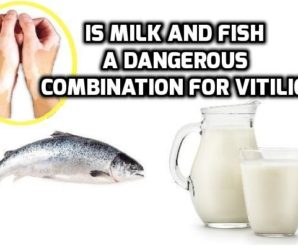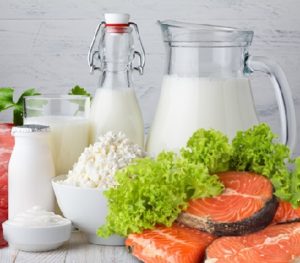
Does taking Milk and Fish together causes Vitiligo?
Does drinking milk after eating fish cause vitiligo?
Does eating fish along with milk or curd (yogurt) causes vitiligo?
Well, I don’t have a one line answer to all these queries.
Let me write down the opinions in support and against this claim and then you can decide at your own.
Opinions in support of this claim
- In traditional health systems including Ayurveda, it is advisable not to consume fish and dairy products (particularly milk) together or immediately one after the other as they are incompatible to each other. Eating them together can trigger some sort of drastic chemical reactions in the body which can prove toxic to pollute the blood and cause vitiligo and other skin issues.
- Fish and milk, both are protein rich foods and proteins are hard-to-breakdown and digest.
- Fish and milk are protein rich foods of different character and composition. The mechanism of digestion will also be different, involving different kinds of digestive juices. Hence, consuming them together in a single meal or immediately one after the other going to trouble your digestive system.
Opinions against this claim
- The modern medical science completely reject these claims as ‘superstitious’ thinking because there is no factual evidence to support them. Moreover, many case studies blame such ‘myths’ and ‘misconceptions’ for delay in proper medical attention which further complicate the situation. (1)
- In many food cultures, people cook fish dishes in milk or curd to improve the taste as well as smell. Also, in many parts of the world, fish is eaten together with milk or other dairy products without any health issues. The Mediterranean diet, which is considered as one of the healthiest diet to live a healthier life, also include fish and dairy products (cheese and yogurt) in daily meals. (2)
I would recommend to be cautious

I would suggest to avoid consuming fish and milk together or immediately one after the other as a precautionary measure for below reasons:
- Vitiligo is an autoimmune health issue and more than 70% of the immune system lies in the gut. Hence, a person with vitiligo is already a victim of poor gut health (that includes the whole digestive system) and consuming these 2 protein-rich foods together will further overburden the digestive system, particularly the liver.
- Also, milk and seafood (particularly fish) are among the major food allergens. (3) Hence, people with vitiligo may prefer not to eat them together to be on the safer side.
Dietary guidelines about fish and milk
- Wild caught, cold water, fatty fish is highly beneficial for all autoimmune health issues, including vitiligo as thy provide healthy omega 3 fatty acids. I have already written a detailed article on this topic. However, contaminated fish or poorly prepared fish dishes can harm you.
Read more: How to choose good quality fish for vitiligo healing
- Try not to consume more than one protein rich food per meal. It means that if you are eating fish, then don’t consume any other protein rich food along with that, particularly the animal proteins such as eggs, meat and chicken.
- It is better not to mix milk with other animal proteins or salty foods; milk is best consumed alone.
Prefer yogurt over milk
Many alternative health experts ask to avoid milk during their vitiligo treatment regimen because of 2 troublemaker components in it- lactose (milk sugar) and casein (milk protein). These 2 components make milk hard-to-digest for people with poor digestive health. In that case, you can eat yogurt (curd) because preparing yogurt from milk involves a fermentation process that converts a part of lactose sugar into lactic acid. Moreover, the live cultures (healthy microbes) in yogurt act as probiotics and help to digest the remaining lactose and casein. That’s why fermented dairy products like yogurt and buttermilk improve the gut flora and calm down the immune system which is good for all autoimmune health issues including vitiligo. (4) It has been proven that people who find it difficult to digest milk can eat yogurt on a regular basis without any allergic symptoms or digestive issues. (5, 6)
So, what’s your opinion?
Are you going to trust the traditional wisdom and avoid consuming milk and fish together or will follow the modern medical science and simply going to ignore the related concerns? Do tell us in the comment box and let us engage in a healthy conversation.


